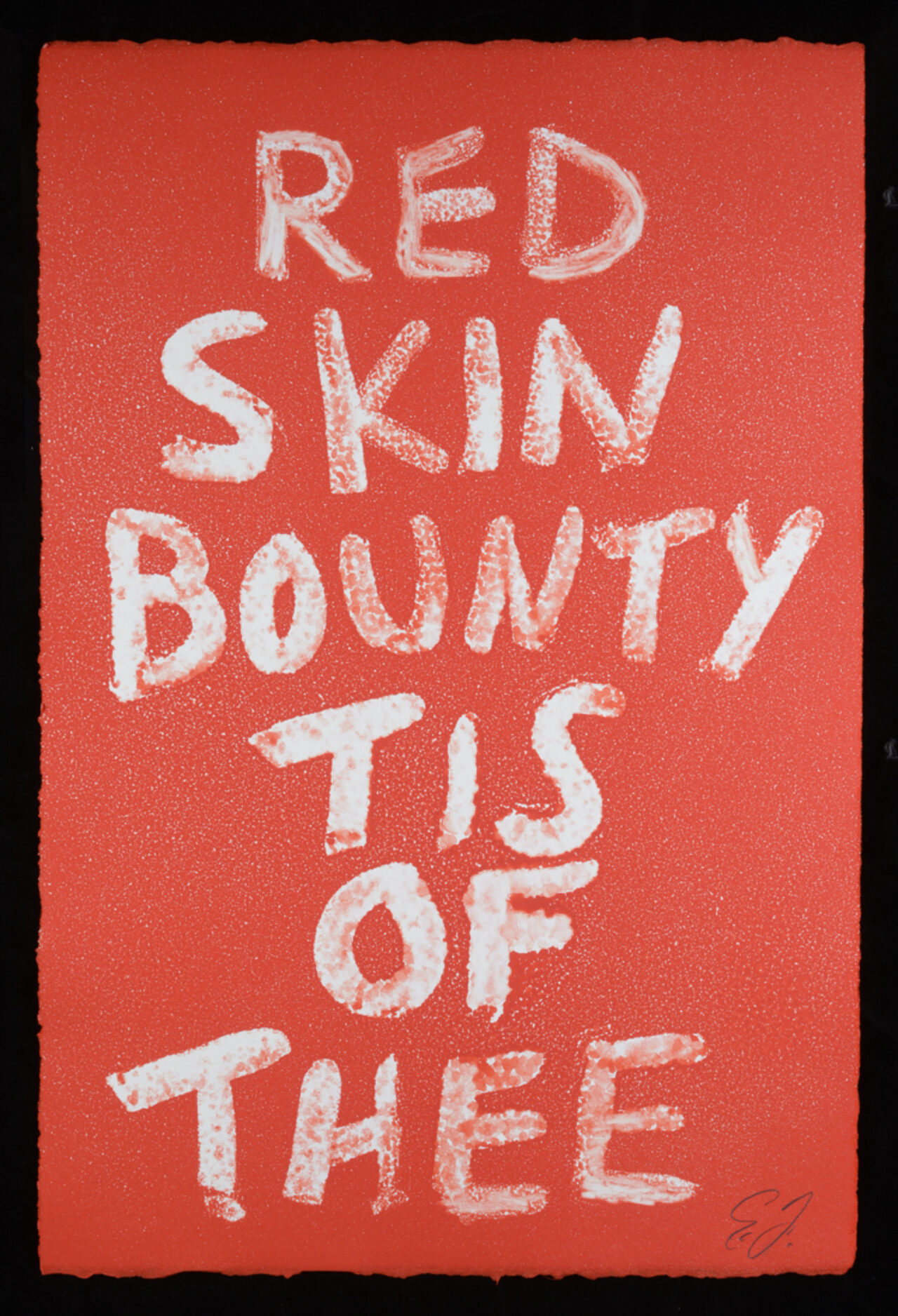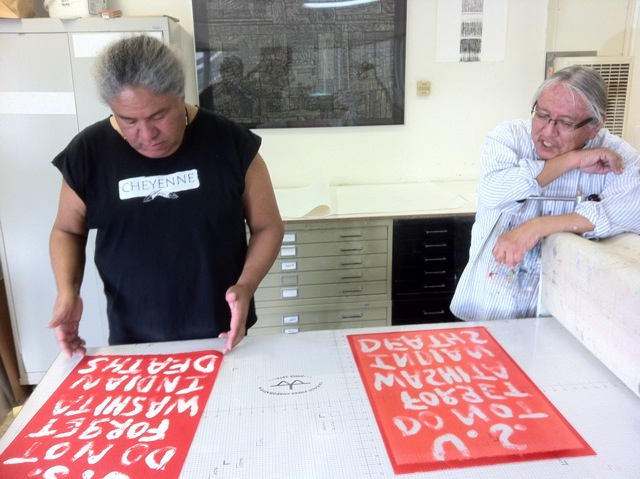Edgar Heap of Birds: Genocide and Democracy, Secrets of Life and Death
Join us for a Gallery Tour, October 1!
Artist Talk: Thursday, September 22, 7PM
Opening Reception: Thursday, September 22, 8PM
The Charles H. Scott Gallery is proud to present a solo exhibition by Hock E Aye Vi Edgar Heap of Birds.
For the past four decades, Heap of Birds has made multidisciplinary
artworks that confront the oppression of Indigenous peoples and attest
to the artist’s profound bond with the landscape of his Cheyenne and
Arapaho homeland.
Likening his art to “sharp rocks,” or the arrowheads traditionally used as tools of defence, Heap of Birds has stated that “the survival of our people is based upon our use of expressive forms of modern communication. The insurgent messages within these forms must serve as our present day combative tactics.” This strategy is at play in the two series of text works in the exhibition—Secrets in Life and Death (2012) and Genocide and Democracy (2016)—where Heap of Birds combines seemingly incongruous words into complex statements that are fraught with meaning.

In a book on Heap of Birds that was recently published by Duke University Press, Bill Anthes writes: “His words grab. They compel repeating and turning over in one’s mind, teasing out the numerous possible meanings, opening new perspectives on unexamined histories, places and ideas. These are words that ask questions, or make us ask them—words that work.” Secrets in Life and Death was originally made for an exhibition in which historical Native American artworks were shown alongside Heap of Birds’ monoprints (for example, a monoprint that reads: “Happy to donate what you took”), thus creating a dialogue around institutional collecting. For Genocide and Democracy, the artist took excerpts from American patriotic songs and combined them with his own texts to produce disconcerting, definitive statements on the politics of inequality. In fact, in many ways Heap of Birds sees this series as a response to the upcoming American election.
The exhibition also includes four paintings from the artist’s Neuf series, a large, ongoing body of work that he began in the early 1980s. These abstracted landscapes were originally painted outdoors and express a renewed connection to the land. For Heap of Birds, the natural world is a lively and replenishing place: “The land is the beginning and the end…the earth remains after you are gone, sand was here before one’s distant relatives,” or, as Anthes puts it, “Land exceeds human history.”
A selection of Murano glass vases produced for the artist’s 2007 exhibition in Venice are also presented alongside the text works and Neuf paintings in the exhibition. While the patterns in the handblown glass are similar to the abstracted forms of the Neuf paintings, their title, Native Bodies in Remembrance, Most Serene Republics, Venice Biennale, brings them in line with the subject of the text works—for the solid forms in the glass depict the bodies of Buffalo Bill Cody’s “Show Indians” who died on his European show tours.
Edgar Heap of Birds has exhibited his work in major institutions throughout the world including the Metropolitan Museum of Art, New York; The Museum of Modern Art, New York; Whitney Museum of American Art, New York; National Museum of the American Indian, Washington, DC; Smithsonian Institution, Washington, DC; The National Gallery of Canada, Ottawa; Museum of Contemporary Art, Sydney; Documenta, Kassel, Germany; Orchard Gallery, Derry, Northern Ireland; Association for Visual Arts Museum, Cape Town; Hong Kong Art Center; Bandung Institute of Technology, Indonesia; Grand Palais, Paris; and the Venice Biennale.
